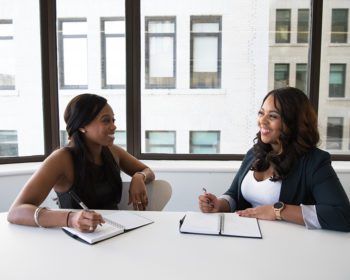Coaching with Elizabeth Crosse – an introduction to me and coaching
Written by Elizabeth Crosse, Coaching Practice Director
My recent research on has been published in the International Journal of Evidence Based Coaching and Mentoring (‘A Q Methodology Study: How Do Coaches Foster the Coaching Relationship?’).
Following on from this I was thrilled to be invited to facilitate a session with the London Coaching Group to share some of my research findings on relationship styles and the ‘relationship style framework’. As part of this I was asked to answer 6 questions in advance of the session. These questions really got me thinking and I wanted to share my responses in this blog post. These may be questions for you to think about for yourself as a coach – I suspect they would be great ones to share with potential clients, coaching colleagues and even for some discussion in group supervision.
- Who or what inspired you to become a coach?
In previous roles I have been involved in delivering leadership training programmes which were well received by participants but further down the line, when I talked with participants and listened to their teams, it was clear that the implementation of new learning was minimal. Around this time coaching was starting to emerge as a way of working with business leaders and individuals. I was excited to read about an approach that facilitated the integration of new skills perspectives and knowledge, enabling people to improve their performance and realise their potential. This led me to introduce ‘coaching conversations’ as an element of training programs. I drew on skills developed from my Rogerian based counsellor training but was very clear we were not working therapeutically. Our conversations were solution focus and started with the premise that the individuals were capable and resourceful, and this was all about enhancing their performance. As a result, we started to see changes in the impact the leadership training programmes were having on the business. I was intrigued, here was a way of working in partnership with individuals to help them learn. I wanted to find out more about coaching, I wanted to be a coach. That was the start of my career in coaching, and the development of coaches.
- What is your favourite thing about being a coach?
As a scientist I am fascinated by the concept of the catalyst – little molecules increasing the rate of a chemical reaction which results in a permanent change. Often these reactions could occur by themselves but would either take longer or need some energy. This idea has become a metaphor for what I love most about coaching. I work with fully capable, resourceful, brilliant people who would probably achieve all they wanted without coaching at some point in their lives. Our coaching relationship fast tracks this process, and like a catalyst, my role is to provide the ‘activating energy’. As the focus of the journey is, in addition to enhancing their ability to perform in their current situation, about building their capability to learn, the changes they create are sustainable. Knowing I have played a role in enabling someone to grow and develop so they are better equipped to cope with future challenges is the most rewarding aspect of being a coach for me.
- What is the thing you find the most challenging as a coach?
Administration! As I personally manage dyslexia and dyspraxia this is an issue for me. However, when I talk with other coaches, I am reassured to know I am not alone in finding the administrative side of a coaching practice challenging. As an internal coach it was the additional time commitment to maintain records, manage diaries and follow up with clients. As an external coach these issues are still relevant but there are the additional challenges as a business owner where I need to work ‘on the business’ as well as ‘in the businesses.
- What’s the biggest lesson you have learnt in recent years?
My biggest learning is to truly trust the inherent value of the coaching process to create value rather than my need to perform. In supervision I have explored how I can be comfortable with being uncertain, feeling ‘stuck’ and at times incompetent. These conversations and reflections on my own practice have helped me become more accepting of ‘not knowing’ and feeling vulnerable. In doing so I noticed a shift in the depth and quality of our conversations and the coaching relationship.
- What advice would you give to new coaches?
Connection is key. Coaching tools, techniques and models are useful, but it is when we fully partner with our client, and work with trust and openness, that the great coaching conversations happen. This is about developing our ability to reflect ‘in the moment’, paying attention to how you are working as well as what you are doing. If you ask a client what makes an outstanding coach their replies usually describe individuals who are approachable, compassionate, great listeners and able to relate well to others. They never mention the fact that a coach uses a GROW model or ‘Wheel of Life’!
- If you could wave a magic wand and have one wish for you or your coaching practice, what would it be and why?
My wish is not personal but for the coaching practice as a profession. We often talk about delivering ‘evidence-based coaching’ despite the lack of empirical research that coaching, or coaching techniques work. Currently we are over reliant on conclusions from therapeutic studies, qualitative research or anecdotal feedback from clients. If businesses and individuals are going to continue investing in coaching, they want to know that ‘its works’. My magic wand would provide the resources and motivation for organisations and professional bodies to commission more coaching quantitative studies. These results would be freely available and enhance the understanding of what coaching has to offer, not just to an induvial and organisation but also to our communities and society.
Future dates
For those of you that would like more depth I will be running a one-day workshop in London ‘How to create great coaching relationships’ on 25 February 2020. This is a workshop with a difference. Based on the very latest research, it will share current knowledge and will use facilitated discussion groups and coaching to give participants the opportunity to explore their skills, knowledge, beliefs and assumptions about the way they foster coaching relationships with clients – find out more and register HERE for your place.
If you’re interested in knowing more, just give us a call on 01582 463461 – we’re here to help!




